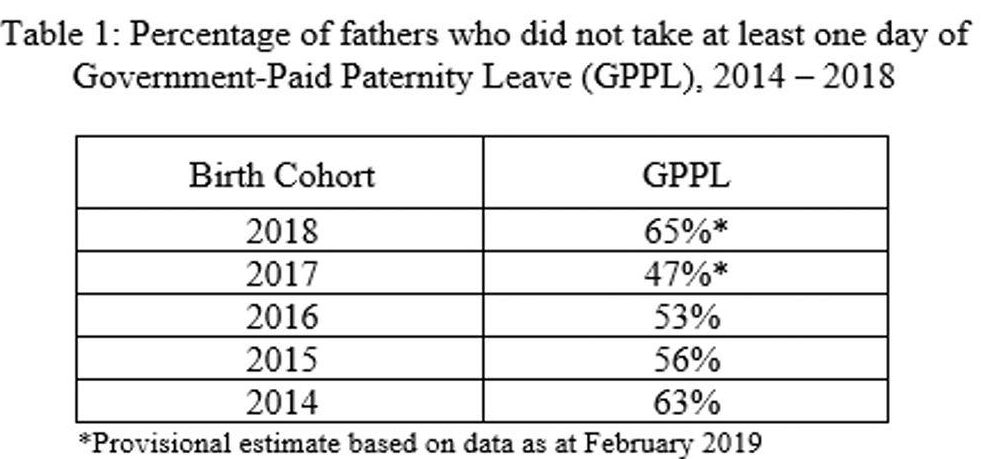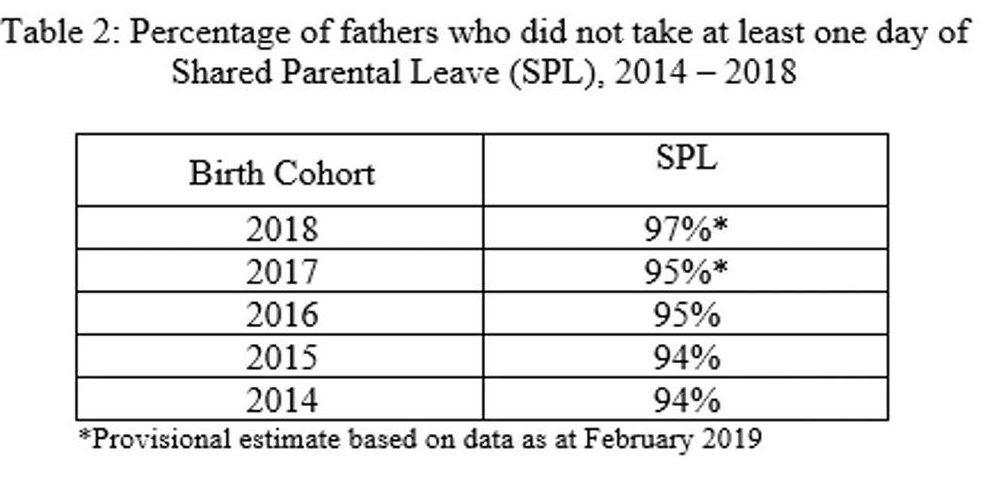65 per cent of Singaporean fathers did not take at least one day of government-paid paternity leave in 2018.
This was the figure revealed by Minister for Social and Family Development (MSF) Desmond Lee, in a written answer in Parliament, on August 6.
Lee was responding to MP Louis Ng, who asked about the percentage of fathers who had not taken any government-paid paternity leave (GPPL) and shared parental leave (SPL), from 2013 to 2018.
Lee clarified the numbers were based on:
"...records of employers who have submitted claims for the leave taken by their employees, and the pool of eligible fathers based on working status of fathers as declared at the point of application for Baby Bonus."
Number of fathers applying for GPPL rose between 2013 and 2017
Lee added that the number of of fathers who applied for GPPL had risen between its initial introduction in 2013 and 2017.
In particular, 2017 saw more than half of eligible fathers applying for at least one day of GPPL.
 Source: Singapore Parlimentary Reports
Source: Singapore Parlimentary Reports
Lee said that in 2017, fathers eligible for GPPL enjoyed an increase from one to two weeks.
SPL also increased to four weeks, from one week previously.
Lee added that the GPPL take-up for 2018 is expected to increase further, given that fathers can take paternity leave up to one year after their child's birth.
Employers then have up to three months to submit claims after the leave is taken.
Less than 10 per cent of fathers have taken SPL since it was first implemented
As for SPL, less than 10 per cent of fathers took it up.
However, Lee noted that the figures are consistent with the experience of other countries.
 Source: Singapore Parlimentary Reports
Source: Singapore Parlimentary Reports
SPL refers to the eligibility of a father to apply for up to four weeks of his wife's 16 weeks of government-paid maternity leave, subject to his wife's agreement.
Lee added that such an option provides parents with the option to manage their caregiving arrangements flexibly.
Top image from MSF Facebook
If you like what you read, follow us on Facebook, Instagram, Twitter and Telegram to get the latest updates.
